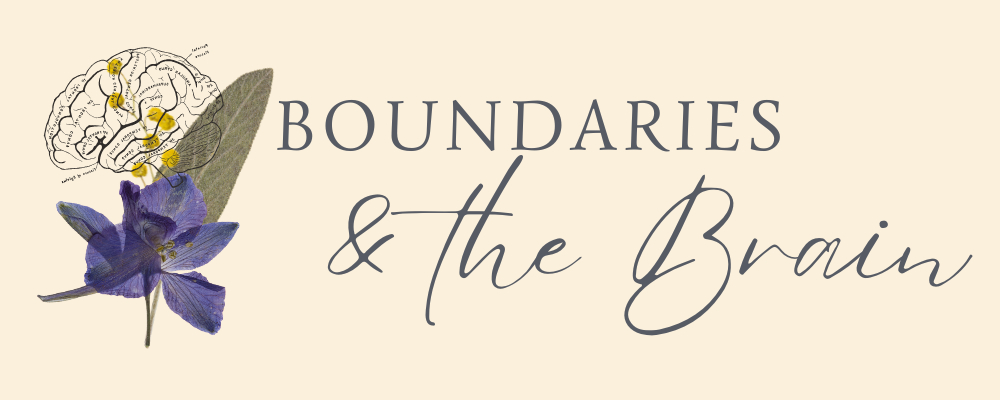Your cart is currently empty!
Why Saying No Feels So Bad
Why Saying “No” Feels So Bad — Even When You Know You Should
The Brain vs. Boundaries
Why saying no feels so bad
You know that feeling — your chest tightens, your heart races, and your mouth opens to say “no,” but what actually comes out is:
“Sure, I’ll do it.”
Even when you know that person has taken advantage of you before.
Even when you promised yourself “never again.”
Neuroscience has an explanation — and good news: once you understand your brain’s wiring, you can start to change it.
Why Your Brain Struggles to Say No
1. The Social Survival System
Your brain is wired for connection. From an evolutionary standpoint, being part of a group meant safety. Being excluded could literally mean death.
The amygdala, your brain’s threat detector, still interprets rejection or disapproval as danger. When you say “no” and anticipate someone’s disappointment, your brain triggers a stress response — a mild fight-or-flight reaction. That’s why saying no can feel almost physically painful.
Neuroscience note:
The same brain regions (the anterior cingulate cortex and insula) activate when you experience social pain — like disapproval — as when you experience physical pain.
So, your guilt isn’t just emotional. It’s biological.
2. The Dopamine Trap of Approval
When someone praises or validates you, your brain releases dopamine, the reward chemical. Over time, especially if you grew up in environments where love or peace depended on compliance, your brain learns to associate “yes” with reward and “no” with risk.
That’s how people-pleasing becomes a habit loop:
- You say yes → They’re happy → You feel safe → Dopamine hits → Brain says: “Do that again.”
But this short-term comfort comes at a long-term cost — self-neglect, resentment, and exhaustion.
3. The Mirror Neuron Effect
Your brain contains mirror neurons that help you empathize with others. When you see someone disappointed, your brain mirrors their emotion — you literally feel their sadness as your own.
If you’re highly empathetic, your mirror neuron system is more active. That’s beautiful for compassion, but it can make boundaries feel cruel.
Your brain whispers: You’re hurting them.
But the truth is: you’re just respecting yourself.
Why It’s Even Harder With People Who’ve Hurt You
You’d think that once someone’s hurt you repeatedly, saying no would get easier. Paradoxically, it often gets harder.
Why? Because your brain craves closure and coherence.
The prefrontal cortex wants your world to make sense. If someone mistreated you, rejecting them reinforces the reality that they’re not safe — which conflicts with your brain’s desire for harmony or redemption.
Saying no to them means admitting:
- They won’t change.
- They didn’t value you.
- You have to let go.
That’s not just an emotional truth — it’s a neurological reorganization of your mental map of that person. And your brain resists that rewiring because it’s uncomfortable.
Rewiring Your Brain to Say “No” Without Guilt
Here’s how to retrain your neural pathways toward healthy boundaries:
1. Practice Micro-No’s
Start small. Decline a call when you’re tired. Say, “Not today,” when you mean it. Each time you do, your brain’s threat response decreases — it learns that no one died, and the world didn’t collapse.
2. Soothe the Amygdala
Before responding, take three deep breaths. This activates your parasympathetic nervous system, calming the amygdala so you can respond with logic instead of fear.
A simple mantra helps too:
“My no is not unkind — it’s honest.”
3. Visualize the Long-Term Gain
When tempted to say yes out of guilt, mentally fast-forward a few hours or days.
How will you feel after doing something you didn’t want to do?
That feeling — resentment, fatigue — is your brain reminding you that safety without self-respect isn’t peace.
4. Reframe Guilt as Growth
Guilt is simply your brain adapting to a new boundary. It’s a sign of neuroplasticity, not failure.
You’re teaching your brain that your worth doesn’t depend on being liked.
5. Anchor in Self-Compassion
After you say no, your mirror neurons may make you feel their disappointment.
Remind yourself: “I can care about someone’s feelings without surrendering my own peace.”
That’s emotional maturity, not selfishness.
Final Thought
Saying no is not rejection — it’s redirection. Your brain’s old programming tells you that “no” endangers connection. But the truth is: “no” builds authenticity, and that’s where real connection begins.
This article is part of our Boundaries and the Brain series. Explore related reads below to understand how your brain handles guilt, empathy, and emotional balance.”

